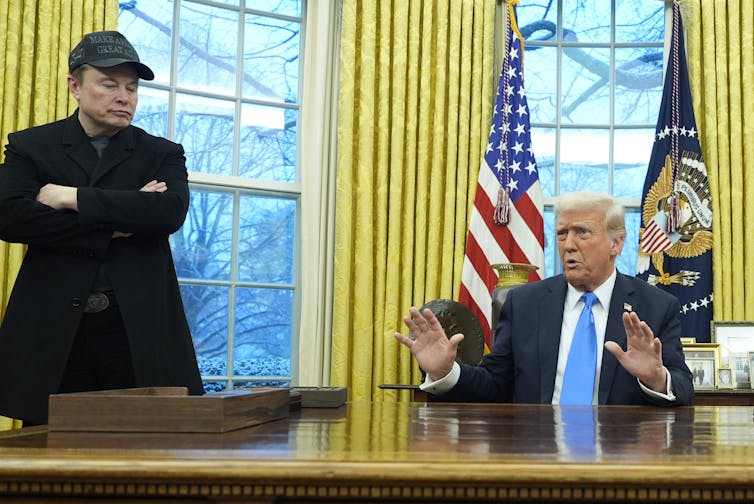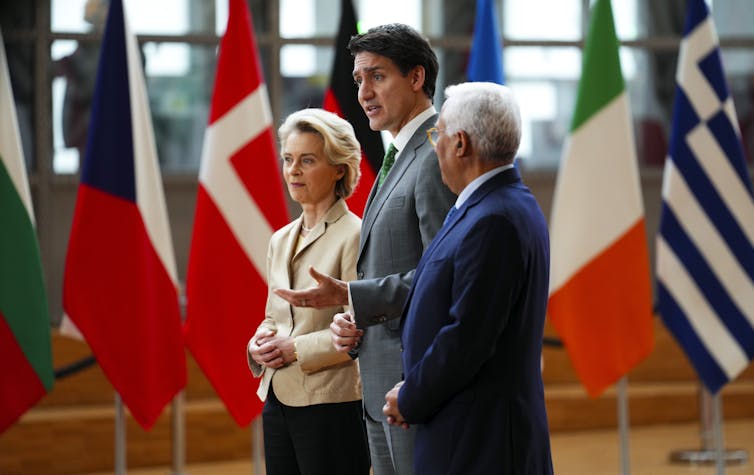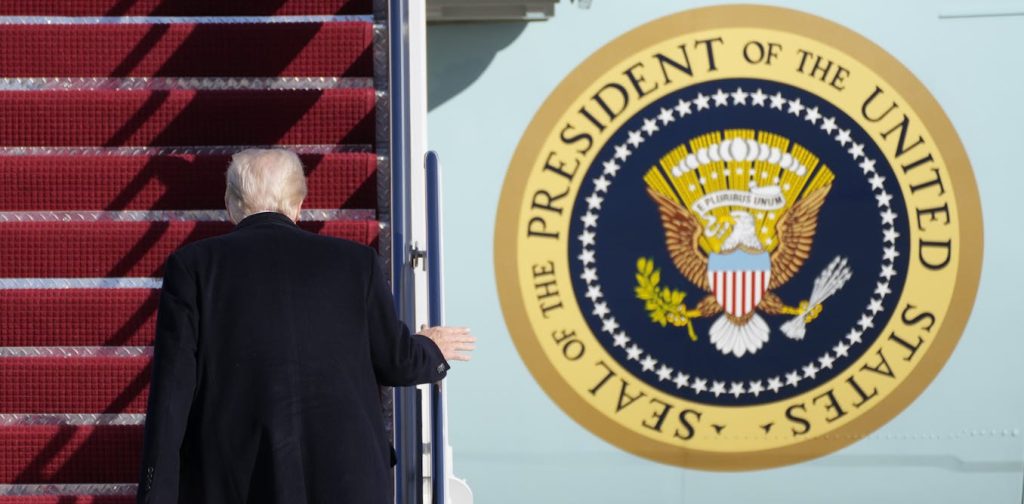When U.S. President Donald Trump first suggested Canada should become the 51st American state, the federal government dismissed it as just a joke. Finance Minister Dominic Leblanc insisted it was “in no way a serious comment.”
Similar skepticism was expressed by political leaders across the world when Trump talked about seizing Greenland and the Panama Canal in early January, by military force if necessary, to buttress U.S. national security. He also floated the idea of taking over Gaza to transform it into the “Riviera of the Middle East.”
Now that Trump has carried through on his aggressive economic threats — launching a trade war with China and raising the possibility of similar conflicts with Canada, Mexico and the European Union — his imperialist expansionism is in plain sight.
Canadian leaders have come to realize that Trump’s actions may not be a temporary or minor irritant, but rather an attack on Canadian sovereignty itself.
The failure to take Trump’s words seriously is reminiscent of British Prime Minister Neville Chamberlain’s skepticism in 1938 that Hitler would actually risk world war despite the latter’s aggressive rhetoric, annexation of Austria and threats to Czechoslovakia and Poland.
What, then, have been the signs of Trump’s expansionist tendencies? American economic and military might, albeit declining relative to emerging powers like China and India, still provides a solid basis for the projection of U.S. supremacy. But there are also two new key elements at play.
A billionaire-corporate administration
The Trump administration appears to operate with a distinctly corporate mindset, treating the nation like a business empire. Trump has stacked his administration with private sector leaders and corporate billionaires such as Elon Musk, Doug Burgum and Howard Lutnick.
Like other billionaires, their immense business success has been founded not on mainstay competitive market practices like productivity or cost-cutting, but on predatory and cannibalistic ones.

(Photo/Alex Brandon)
These include controlling resources like oil, gold, diamonds and coltan to secure production inputs; buying out competitors to monopolize markets and patents; and deliberately breaking up and destroying companies through mergers and acquisitions with little regard for the resulting job losses.
It is within this framework that Trump’s allegations about buying Greenland and Gaza, annexing Canada through “economic force” and capturing the Panama Canal need to be seen.
Read more:
Billionaires and loyalists will provide Trump with muscle during his second term
Under the guise of national security, the idea is not simply to safeguard borders, but to engage in economic expansionism and real estate development, aided by the U.S. military when needed. Taking control of land, waterways and mineral wealth is critical to building “America’s Golden Age” of corporate capitalism.
This approach seems to be a mainly business one, with little concern for the social costs (recession, unemployment, violence) produced by such imperialistic ventures. In line with his infamous book, The Art of the Deal, Trump appears to view foreign nations and domestic opponents alike as obstacles to be callously bullied, degraded, manipulated, exploited and finally vanquished.
American nationalist populism
The Trump administration’s imperial ambitions lie in the nationalist populism that propelled Trump and his allies into power for the second time.
Trump’s populism has successfully tapped into widespread anxieties among Americans — job insecurity, food prices, the housing crisis — by promising to soothe their worries through the “Make America Great Again” (MAGA) agenda.
Read more:
Trump’s view of the world is becoming clear: America’s allies come second to its own interests
Like other right-wing populist movements around the globe — Recep Tayyip Erdoğan’s in Turkey, Viktor Orbán’s in Hungary and the Brexit campaign in the U.K. — the MAGA movement has sought to unify the U.S. by identifying and targeting perceived national enemies. These include so-called “illegal” migrants, transgender people and the country’s largest trading rivals: Mexico, Canada and China.
By blaming these groups, especially those seen as contributing to America’s economic decline, MAGA whips up nationalist sentiment in the form of suspicion, aggression and vengeance. The result is a deeply polarized nationalist discourse in which one is either a loyal supporter or an enemy; a believer or a “woke” liberal.
A lethal imperial set-up
The combination of U.S. global power, nationalist populism and the Trump administration’s corporate-driven, predatory approach makes for a dangerous dynamic.
This mix is fuelling a form of economic expansionism that is now beginning to manifest itself. The impending trade wars, potential dismantling of the U.S.-Mexico-Canada Trade Agreement (which Trump initiated in 2018 to avoid unilateral trade moves by its signatories) and the brazen disregard for the socioeconomic consequences of foreign territorial control, such as the forced displacement of Palestinians, are all signs of this.

THE CANADIAN PRESS/Sean Kilpatrick
While many assumed Trump’s administration would be protectionist and isolationist, a more troubling and nefarious reality is emerging. His administration appears to be intent on securing America’s industrial dominance through trade wars while expanding it through hawkish economic imperialism.
There is a clear ruthlessness to this approach, with a willingness to pressure not only America’s perceived enemies but also its allies. “America First” is starting to looks like “America Above All Others” as Trump attempts to bully U.S. rivals into subordination, with disturbing echoes of past authoritarians.
Unravelling American imperial designs
Many obstacles could prevent Trump’s aggressive expansionism from fully taking shape. While the key ingredients may already be there, and some have begun to be deployed, that doesn’t mean they will come to fruition.
The Trump administration’s policymaking process is often chaotic and theatrical, prioritizing short-term political gains over long-term strategy. This instability undermines any consistent efforts at expansion.
There is also the risk that Trump’s trade wars will backfire. They could end up causing hardship to U.S. companies and consumers through higher food and energy prices, job losses in key industries like agriculture and auto manufacturing, and increased stock market instability. Such consequences could negatively affect Trump’s corporate allies.
Meanwhile, Trump’s economic and military rivals could forge new alliances to challenge his attempts at global supremacy. Prime Minister Justin Trudeau, for instance, recently met with the head of NATO and other European allies to strengthen trade and security ties.
The first step to any countermoves by Trump’s foreign adversaries will be seeing his regime’s designs for what they are: chaotic, perhaps, but serious expansionist ones.







